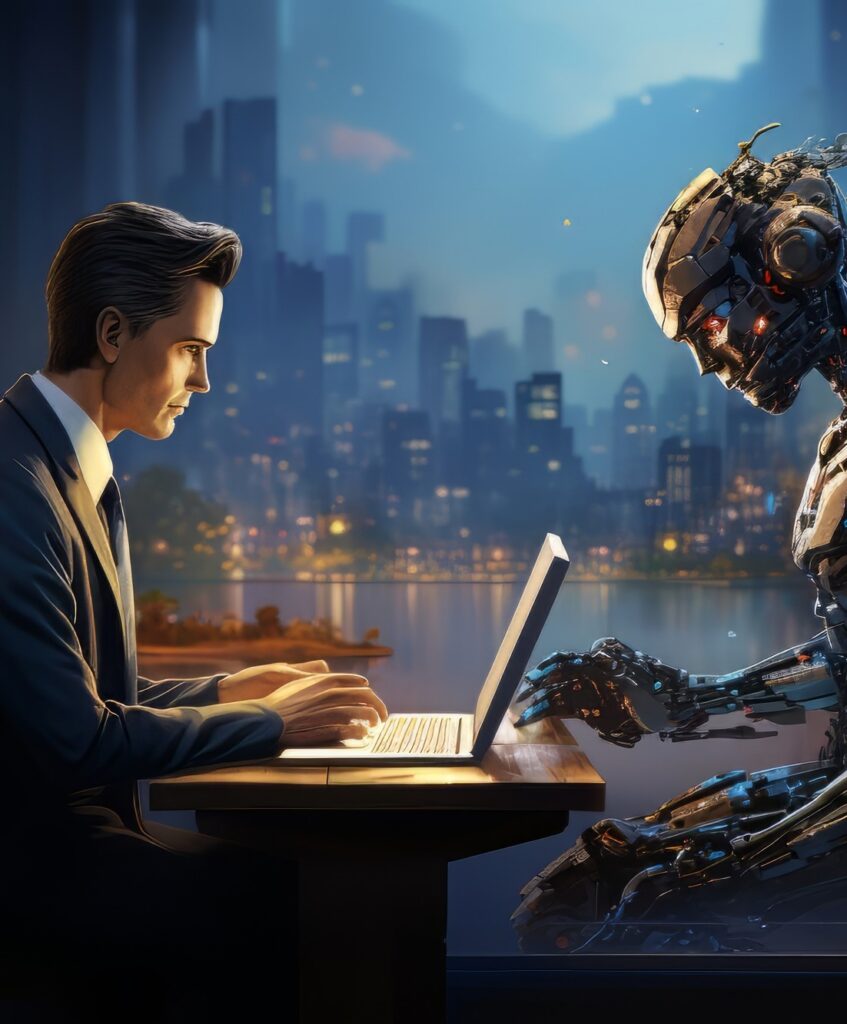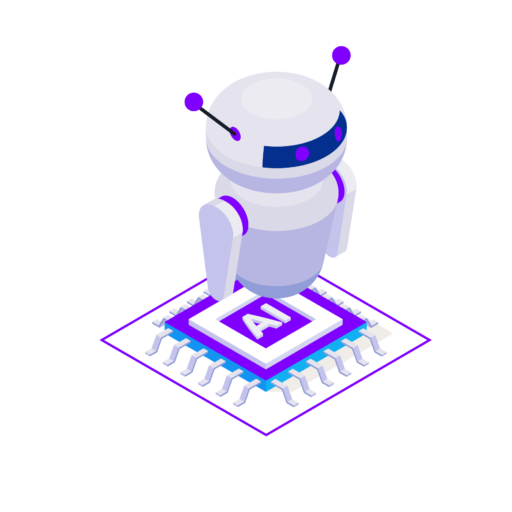CHECK WILL AI TAKE YOUR JOB?
Want to know what jobs will AI replace?
Enter your job profile below & hit the check button
Will robots steal your job?
The development of Artificial Intelligence that powers automation threatens human jobs in many industries. Thus, in this post, we will think about jobs that AI can take, listen to our users, and talk about both the worst and the best areas for job and wage growth with the AI development… Do you know that within the next decade, artificial intelligence will replace nearly 20 million human workers? The rapid spread of AI technology is creating a solid background for the evolution of the working force. Surprisingly, replacing one job with another is not the only aspect of the issue. Job industry and market are transforming multiple times, catching up people’s work rhythm. This paper shall delve into the morphing scene of AI automation as it remoulds the works. It does so by discussing the impact of artificial intelligence on jobs, as well as, the career paths that are at high risk of being substituted by AI technology. Ultimately, it is essential to comprehend these transformations for workers, employers, business leaders, and those who develop policies on how to redefine the work context amidst the AI epoch.
About jobs
In the fast-evolving technological environment, the job market is transforming as well. Standard positions associated with dull repetitive actions and data-based decisions are usually automated by AI-based solutions. Sectors like manufacturing, customer support, and transportation are among those at risk of being replaced by machines. In contrast, professions entered on creativity, problem-solving, and emotional intelligence are less likely to fall for AI. For instance, software development, marketing planning, and healthcare workers require skills that are hard for a machine to replicate. Many people are concerned about AI’s potential negative influence on employee rates, but some argue that new professions are to appear with the growth of new opportunities. Adapting skill sets and embracing lifelong learning may be crucial for individuals navigating this shifting job market terrain.


Jobs loss risk
The rise of AI technology has made the fear of losing jobs to automation continue, with AI replacing human beings in various sectors. Many sectors have seen frustrating and awe-inspiring automated systems replace human beings. The manufacturing sector, customer service, transport sectors, and other white-collar jobs such as accounting and legal services are under threat. AI plays a vital role in ensuring that sectors run efficiently; however, this has kept professions at stake. The fear of automation thus has workers fearing losing their jobs, with such debates as upskilling and reskilling the workforce continue to rise as companies continue to invest in AI technologies. As companies continue to invest in AI technologies, it is essential for individuals to stay ahead by acquiring new skills that complement rather than compete with machines. Adapting to this new reality will be crucial for securing stable employment in the future job market.
Jobs growth: Technology has opened new job opportunities as it advances further. The need for artificial intelligence has brought new jobs into the market. For instance, books on the future of work highlights the demand for data scientists, AI engineers, and machine learning specialists. These jobs require one to have the requisite skills and background in computer science, data analysis, and engineering to develop and implement artificial intelligence technologies. In addition, since many companies are incorporating artificial intelligence in their operations, there has been a rise in demand for professionals who can interpret insights derived from big data. In the Future of Coverage, big data has been applied in business intelligence and analytical tools; hence, the insights have widened the scope of employment in jobs like data analysis and business intelligence consultants.
Wages growth
Given that AI is likely to transform industries and the job market, it is even more vital that concerned workers morph and acquire new skills, enabling them to keep up with the changing workplace. Beyond the fear-mongering of job elimination, AI is believed to be a significant catalyst for new job prospects in AI-related fields. As more and more tasks become automated with the rise of AI, people will be free to perform multifaceted duties that require high-level awareness and creativity, like those in which humans are still superior to machines . Furthermore, AI might enable other sectors to increase productivity by taking over monotonous tasks. For specialized-person interaction and high-level cognitive tasks, wages are likely to rise. In such industries, originality and distinctiveness may be more highly valued as employers confront competitive AI technologies. Undoubtedly, AI will change the job market shortly, but it will also bring multiple opportunities. Thus, those who actively respond to the forthcoming changes and ready to learn continuously have the chance to succeed in the world where man and machine coexist peacefully.








